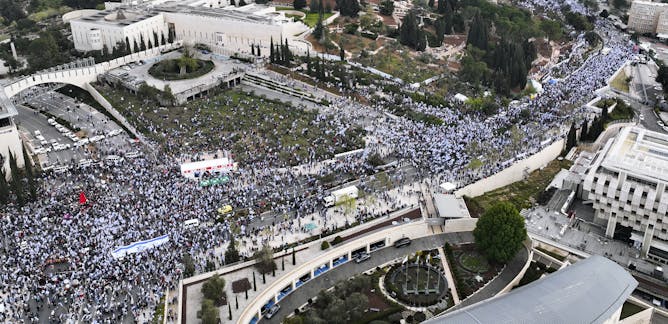|
|
|
|
This has been a typical week in the United States, one punctuated by yet another mass shooting. The latest shooting occurred in a Nashville, Tennessee, Christian elementary school. Three 9-year-olds and three adults, as well as the assailant, died. Sadly, the location of the shooting and the ages of the victims are not new. We have seen elementary school mass shootings before.
“Why in God’s name do we allow these weapons of war on our streets and at our schools?” President Joe Biden asked as he called on Congress to pass a new assault weapons ban.
This week, Michael J. Klein, who belongs to a group of injury epidemiologists and trauma surgeons who studied the impact of the country’s previous assault weapons ban on mass shooting deaths, writes: “In the years after the assault weapons ban went into effect, the number of deaths from mass shootings fell, and the increase in the annual number of incidents slowed down.”
Klein also explains how mass shootings changed after the assault weapons ban expired in 2004.
|

|
Lorna Grisby
Senior Politics & Society Editor
|
|

Gun control activists rally in Nashville, Tenn.
Brendan Smialowski/AFP via Getty Images)
Michael J. Klein, New York University
Analysis of the 10 years in which the US banned sales of assault weapons shows that it correlates with a drop in mass shooting deaths – a trend that reversed as soon as the ban expired.
|

A member of Israel’s military reserves takes part in a protest on March 16, 2023 in Bnei Brak, a city east of Tel Aviv.
Photo by Eyal Warshavsky/SOPA Images/LightRocket via Getty Images
Dan Arbell, American University
Israel’s leader, Benjamin Netanyahu, has fired the country’s defense minister. That deepened the country’s crisis over proposed judicial reforms that even military reservists have protested.
|

A voter casts his ballot at an early voting location in Alexandria, Va., Sept. 26, 2022.
AP Photo/Andrew Harnik
Charles R. Hunt, Boise State University
A loud chorus of Democrats – and some Republicans, too – has for years claimed gerrymandering is costing their party seats in Congress. Is it true?
|
|
|

A.D. Carson, University of Virginia
As the world celebrates the 50th anniversary of the birth of hip-hop, a scholar of the culture and its musical genres explores the meaning of the word ‘dope.’
| |

Robbin Mellen Jr., University of South Florida
Senators, governors, representatives and past presidents have to weigh multiple factors before declaring their 2024 run for president. Campaign financing is one of them.
|

Kristin Ann Hass, University of Michigan
A memorial to Coretta Scott and Martin Luther King Jr. has received stinging criticisms, but time will tell whether ‘The Embrace’ will endure as a cherished work of public art.
| |

Naomi Schalit, The Conversation
Three scholars examine the implications of the crisis roiling Israel as hundreds of thousands of people protest across country.
|

Nicole Pankiewicz, College of Coastal Georgia
Science fiction does more than entertain – it can also be used to better understand the political forces that shape the societies in which we live.
| |

Maxim Krupskiy, Tufts University
Foreign agent laws claimed as a tool to fight back against foreign interference can also be used to silence critics and repress law-abiding NGOs, independent media and individuals.
|
|
|
|
|
-
Kristian Coates Ulrichsen, Rice University
Saudi Arabia’s choice of China to broker its deal with Iran surprised many, but is consistent with its foreign policy agenda.
-
Willow Kreutzer, University of Iowa; Stephen Bagwell, University of Missouri-St. Louis
When government responses to a natural disaster do not address the specific needs and vulnerabilities of women and girls, women tend to lose trust in the institutions.
-
Lloyd Daniel Barba, Amherst College
A scholar of religion looks at how faith helped guide the labor rights icon in his organizing endeavors.
-
Rachel Kyte, Tufts University
Ajay Banga is expected to be the next World Bank president. It’s a crucial time, with calls for reform and sky-high expectations of what one leader needs to do. A former World Bank official explains.
|
|
|
Like this newsletter? You might be interested in our other weekly emails:
|
| |
| |
| |

|
| |
| |
| |
| |
| |
| |
|
|
|
|
|
|
|